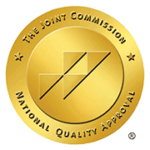Cognitive Behavioral Therapy (CBT): A Key Approach in Mental Health Care at Mission Connection
Cognitive Behavioral Therapy (CBT) is a focused, short-term therapy aimed at reshaping negative thoughts and behaviors. As mental health concerns grow, finding effective treatments is crucial. CBT is an evidence-based approach used for various conditions, promoting healthier coping mechanisms. At Mission Connection, CBT empowers individuals to take control of their mental well-being, offering strategies for long-term change.
Understanding Cognitive Behavioral Therapy
Cognitive Behavioral Therapy (CBT) is a structured, short-term therapy aimed at changing negative thoughts and behaviors.
Effective mental health treatment is crucial as global mental health issues rise. At Mission Connection, CBT offers proven solutions.
CBT is a leading evidence-based therapy for diverse mental health disorders today.
History and Growth of CBT
Cognitive Behavioral Therapy (CBT) is rooted in the work of Aaron Beck and Albert Ellis, who laid its theoretical foundations. Beck's cognitive therapy focused on how negative thoughts influence emotions, while Ellis’s Rational Emotive Behavior Therapy (REBT) emphasized the role of beliefs. Both were influenced by behaviorism and cognitive psychology, integrating these elements to create an effective approach for treating various mental health disorders. At Mission Connection, we harness these principles to empower individuals to challenge unhelpful thinking patterns and develop healthier coping strategies.
Cognitive Behavioral Therapy (CBT) has evolved significantly since its inception in the 1960s. Initially developed by Aaron Beck, cognitive therapy focused on identifying and changing negative thought patterns. Around the same time, Albert Ellis introduced Rational Emotive Behavior Therapy (REBT), emphasizing the impact of beliefs on emotional health. Over the years, CBT integrated behavioral interventions, creating a structured approach that addresses both thoughts and behaviors. Today, CBT is widely recognized as an evidence-based treatment for various mental health disorders, providing individuals at Mission Connection with effective tools to improve their well-being and resilience.
Cognitive Behavioral Therapy (CBT) has a robust body of research supporting its effectiveness in mental health treatment. Landmark studies, such as those published in the Archives of General Psychiatry, demonstrated that CBT can be as effective as medication for treating depression. Randomized controlled trials (RCTs) have consistently shown significant improvements in anxiety, PTSD, and OCD symptoms through CBT interventions. Longitudinal studies further highlight that the benefits of CBT often persist long after treatment ends, reinforcing its role as a foundational approach in mental health care. At Mission Connection, we rely on this evidence-based practice to empower individuals on their journey to recovery.
Core Principles of Cognitive Behavioral Therapy
CBT effectively addresses mental health challenges by changing unhelpful thoughts, behaviors, and core beliefs for better coping.
The cognitive model posits that thoughts, feelings, and behaviors are interconnected. By modifying maladaptive thinking patterns, individuals can change their emotional and behavioral responses. At Mission Connection, we focus on helping clients identify and challenge negative thoughts, leading to improved mental well-being.
CBT incorporates behavioral techniques to reduce avoidance and encourage healthier habits, promoting overall well-being.
In CBT, collaboration between therapist and patient is vital for effective treatment and meaningful progress.

Understanding CBT Techniques
Cognitive restructuring involves identifying and challenging negative or irrational thoughts and beliefs to foster healthier thinking patterns.
Behavioral activation involves engaging in positive activities to boost mood and reduce depression symptoms effectively.
Exposure therapy gradually confronts fears to reduce anxiety and promote coping skills in a supportive environment.
Mindfulness and relaxation techniques, including mindfulness-based CBT, help reduce stress and improve emotional regulation. These methods teach individuals to focus on the present moment, fostering awareness of thoughts and feelings without judgment. Techniques such as deep breathing, progressive muscle relaxation, and guided imagery are incorporated to enhance coping skills and promote overall well-being. At Mission Connection, we integrate these approaches to support clients in managing stress and cultivating a balanced mindset.
Mental Health Conditions Treated by CBT
CBT effectively treats mood disorders by reshaping negative thoughts and improving emotional responses.Anxiety Disorders (Generalized Anxiety Disorder, Panic Disorder, Social Anxiety) CBT effectively reduces anxiety through exposure therapy and cognitive restructuring, enhancing coping skills and resilience.
CBT is effective for managing Obsessive-Compulsive Disorder (OCD) through exposure and response prevention (ERP). This technique gradually exposes individuals to their triggers while preventing compulsive behaviors, helping them learn to tolerate anxiety without acting on obsessions. By using CBT for OCD, clients can reduce the power of their intrusive thoughts and improve their overall mental health. At Mission Connection, we utilize these evidence-based Cognitive Behavioral Therapy techniques to empower individuals in managing their symptoms effectively.
Trauma-focused CBT effectively addresses intrusive thoughts and hyperarousal in PTSD treatment.
CBT, alongside medication, helps manage schizophrenia by addressing symptoms and improving coping strategies.
Cognitive Behavioral Therapy (CBT) effectively helps manage ADHD symptoms by teaching organizational skills, time management, and coping strategies.
Eating Disorders
CBT helps individuals build coping skills to manage cravings and reduce relapse risk through effective strategies and support.
CBT Across Mental Health Settings
- CBT in outpatient therapy helps clients identify negative thoughts and develop coping strategies for mental health issues.
- CBT plays a crucial role in inpatient care, addressing severe mental health conditions through structured interventions and support.
- Group-based CBT programs offer valuable benefits by creating a supportive environment where individuals can share experiences and learn from one another. This collaborative setting encourages open discussion about challenges, fostering a sense of community among participants. Sharing insights and coping strategies enhances understanding and reinforces learning. At Mission Connection, group CBT not only helps individuals gain new perspectives but also reduces feelings of isolation, making recovery a shared journey.
- The use of online CBT programs and teletherapy has surged, especially during the COVID-19 pandemic. These digital platforms provide accessible mental health support, allowing individuals to engage in therapy from home. At Mission Connection, we leverage these tools to ensure that clients continue to receive effective CBT techniques, maintaining progress in their mental health journey despite physical barriers. Online therapy has become a vital resource for many, making mental health care more flexible and convenient than ever.
CBT Treatment Timelines and Practicalities
Typical CBT treatment lasts 8 to 20 sessions, depending on individual needs.
Expect 1-2 sessions per week for 2-6 months, tailored to individual needs.
A CBT treatment plan typically includes 12 sessions over 3 months, focusing on specific goals.

Effectiveness of Cognitive Behavioral Therapy
Meta-analyses and RCTs confirm CBT’s effectiveness for various mental health disorders, showing lasting improvements. CBT significantly maintains mental health improvements and reduces relapse rates, ensuring lasting recovery at Mission Connection. Real-life success stories highlight the transformative impact of CBT at Mission Connection, empowering individuals on their recovery journey.
Benefits and Advantages of CBT
CBT is a time-limited therapy with clear objectives, making it efficient for achieving mental health goals. CBT provides individuals with lasting coping strategies to manage mental health challenges long after therapy concludes. CBT can be customized to fit specific needs and conditions, ensuring flexibility for diverse patient demographics at Mission Connection.

CBT vs. Other Therapeutic Approaches
Cognitive Behavioral Therapy (CBT) is a short-term, goal-oriented approach that focuses on identifying and changing negative thought patterns and behaviors. In contrast, psychodynamic therapy takes a longer, insight-based focus, exploring unconscious processes and past experiences to understand present emotional difficulties. While CBT emphasizes practical skills and immediate symptom relief, psychodynamic therapy aims for deep self-awareness and emotional insight over an extended period. This distinction makes CBT an effective choice for those seeking quick, actionable strategies for mental health improvement.CBT vs. Dialectical Behavioral Therapy (DBT)
Dialectical Behavior Therapy (DBT), an offshoot of Cognitive Behavioral Therapy (CBT), integrates mindfulness and emotional regulation techniques to effectively address Borderline Personality Disorder (BPD). DBT emphasizes the development of mindfulness skills, allowing individuals to observe their thoughts and feelings without judgment. This practice helps in recognizing and managing intense emotions. Additionally, DBT teaches emotional regulation strategies, enabling clients to cope with distress and reduce impulsive behaviors. By combining these techniques, DBT provides a comprehensive framework for individuals with BPD to enhance their emotional stability and interpersonal effectiveness.
Cognitive Behavioral Therapy (CBT) employs structured techniques aimed at identifying and altering negative thought patterns. In contrast, humanistic therapies adopt a non-directive, client-led approach, focusing on self-exploration and personal growth. While CBT actively guides clients through specific exercises and strategies to achieve goals, humanistic therapies emphasize the therapeutic relationship and the client’s intrinsic ability to find solutions. This distinction allows CBT to be action-oriented, while humanistic approaches prioritize emotional experiences and self-acceptance, catering to different therapeutic needs and preferences.
Finding a CBT Therapist
At Mission Connection, working with a qualified Cognitive Behavioral Therapist ensures clients receive evidence-based treatment tailored to their needs. Certified therapists are trained to navigate mental health challenges, providing a safe and supportive environment for growth and recovery. This professionalism is essential in fostering trust and achieving positive outcomes in therapy.
Choosing the Right Therapist
When selecting a therapist, consider their areas of specialization and therapeutic approach. At Mission Connection, finding a qualified Cognitive Behavioral Therapist who understands your specific needs, whether it’s anxiety, depression, or trauma, is essential for effective treatment. Ensure the therapist’s expertise aligns with your mental health goals to foster a supportive and productive therapeutic relationship.
Mission Connection’s CBT Therapy
CBT serves as a fundamental element in evidence-based mental health care, delivering effective tools for sustainable healing at Mission Connection.
Consider Cognitive Behavioral Therapy (CBT) as an effective strategy for tackling mental health challenges. At Mission Connection, we believe CBT can significantly enhance your overall well-being, equipping you with tools for a healthier and more balanced life.
We urge you to reach out to a mental health professional at Mission Connection to explore whether Cognitive Behavioral Therapy (CBT) is the right fit for your specific needs. Our team is here to provide guidance and support as you navigate your mental health journey.






